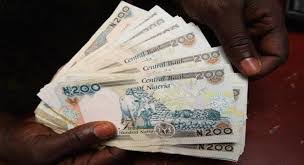Despite the widespread economic hardship in the country, Nigerians actually had more money at their disposal for consumption, according to the Latest Nigeria Gross Domestic Product (Expenditure and Income Approach) report for first quarter (Q1) and second quarter (Q2) 2023 released by the National Bureau of Statistics ( NBS).
The report shows that the National Disposable Income grew by 9.29 percent and 8.29 percent in Q1 and Q2 of 2023 respectively, higher than the growth of 1.55 percent and 1.84 percent in Q1 and Q2 of 2022 respectively, on a year-on-year basis in real terms.
“The growth of National Disposable Income became positive since Q4 of 2021, showing a better performance in Q1 & Q2 of 2023 relative to Q1 and Q2 of 2022,” the report said.
This growth in disposable income is reflected in the household expenditure pattern which also shows a positive trend during the period under review.
According to NBS, “Household Consumption Expenditure, in Q1 and Q2 of 2023 grew by -24.95 percent and 3.30 percent in real terms, year-on-year. The growth rates in Q1 and Q2 of 2023 were lower than the rates recorded in Q1 of 2022 and higher than Q2 of 2022.”
It explained that Household consumption expenditure consists of expenditure, including imputed expenditure, incurred by resident households on individual consumption goods and services.
“Household Consumption accounted for the largest share of real Gross Domestic Product at market prices, representing 57.18 percent and 64.05 percent in Q1 and Q2 of 2023 respectively, compared to 78.02 percent and 63.65 percent in the corresponding quarters of 2022,” NBS said.
“In 2020, real household consumption expenditure declined in Q1 and Q2, accounting for negative growth rates informed by the Covid-19 pandemic. “However, positive growth rates were recorded from Q3 of 2020 due to recovery from the pandemic. Growth became negative from Q2 of 2022 to Q1 of 2023 because of rising prices, cash crunch, and worsening economic conditions.”
The Central Bank of Nigeria had argued that there is too much money in circulation especially in the second quarter because of the elections.
According to the data from the CBN, currency in circulation rose by 88 percent from N1. 39 trillion in January to N2. 60 trillion in June 2023.
The report also shows that government onsumption Eexpenditure also recorded growth rates of 17.83 prcent and 5.79 percent in Q1 and Q2 of 2023 respectively, on a year-on-year basis, higher, compared to -9.91 percent and -6.23 percent in Q1 & Q2 of 2022.


